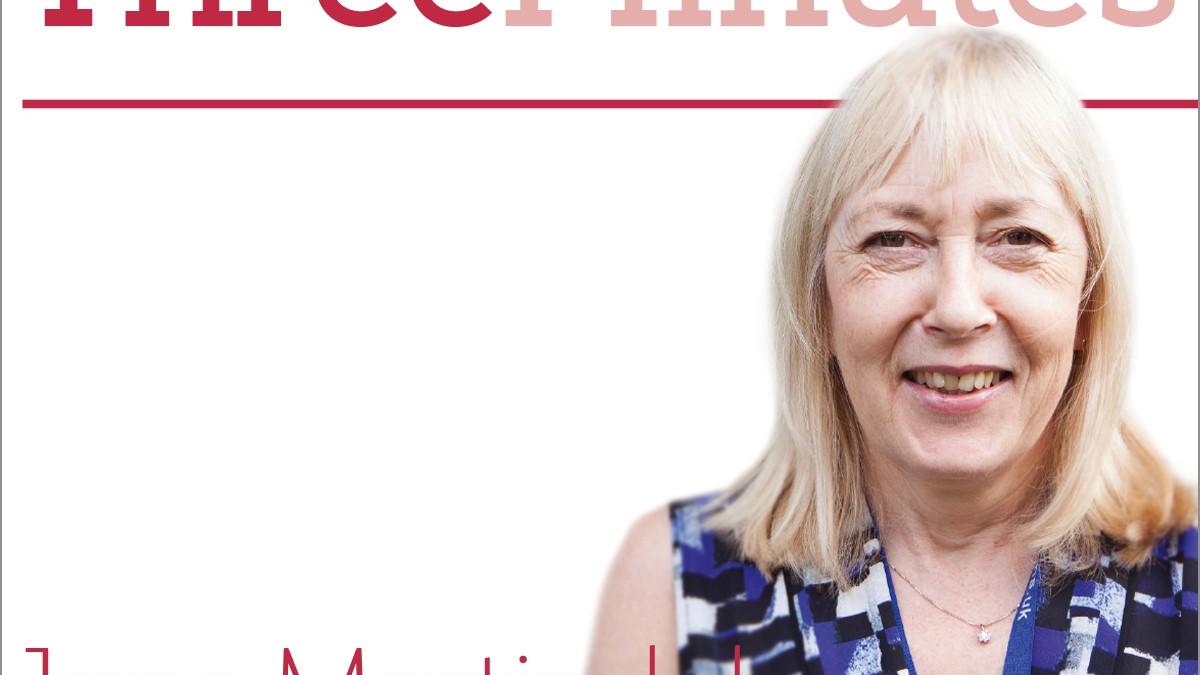For more than 30 years, Jane Martindale has devoted her career to spondyloarthritis. Now she’s part of a national campaign to get wider recognition for the condition.

What sparked your interest in spondyloarthritis?
Since 1984, I have worked at Wigan’s Wrightington Hospital in the rheumatology service where Dr David Swinson, our consultant rheumatologist, asked us to monitor patients with ankylosing spondylitis. This has been the focus of my career. I often feel privileged to say that I am growing older with our patients as we support them through their life journeys.
You’re now a member of BRITSpA. What do you hope to achieve?
I am the first allied health professional (AHP) member and it was an honour to be appointed to the British Society for Spondyloarthritis (BRITSpA), which was set up to advance the knowledge and treatment of spondyloarthritis. I see my role as the voice for AHPs because we have a crucial part to play in the management of spondyloarthritis and a growing one in research (britspa.co.uk). In addition, I’m a member of AStretch, a national body of physiotherapists specialising in the treatment of ankylosing spondylitis and will be able to provide a vital link between the two organisations (www.astretch.co.uk). I’m excited that we’ll be able to help to influence the development of future research studies and facilitate how research transforms into practice.
How does your PhD inform your practice?
My thesis on disease severity and psychological status of ankylosing spondylitis took eight years to complete, in 2009, and was the most important part of my career. It transformed how I practise. It taught me how to ‘do’ research and to gather evidence – the very essence of ‘evidence-based practice’. More than that, as a clinician/researcher, I learned to truly listen to my patients. I began to understand the impact that living in their biopsychosocial worlds has on the way they cope with the unpredictability of an inflammatory condition which is, to a large extent, ‘invisible’. It isn’t all about getting people to exercise but understanding the way psychological and social status influence how people perceive their condition.
In 2012, I was awarded a National Institute of Health Research clinical lectureship. As a consequence, with support from my trust, I am fortunate to hold a clinical academic post. This allows me not only to care for my patients, but also to continue my research. I remain passionate about exploring the way people cope with the challenges of living with this condition.
What are the biggest challenges in providing physiotherapy?
It is still taking eight years or longer for people to be given a diagnosis. The National Ankylosing Spondylitis Society (NASS) is doing a fantastic job of trying to raise awareness of this condition by targeting GPs, physiotherapists, chiropractors and osteopaths (nass.co.uk). Of every patient with back pain, only five per cent will have spondyloarthritis. So it’s a needle in a haystack. The provision of hydrotherapy is also a major issue and [physios] Mel Martin and Claire Jeffries are currently working on an NASS-sponsored project to evaluate this on a national basis.
One thing you’d change about physio for spondyloarthritis?
My wish would be that every person with a diagnosis of spondyloarthritis would have access to timely specialist physiotherapy, no matter where they live in the UK.
What’s your vision for 2018?
To continue to do my best to inspire my colleagues to improve and advance the care we give to people living with spondyloarthritis.
On a personal note, I’m going try to walk for 20 minutes a day five times a week – I need to practise what I preach!
- Jane Martindale is a clinical specialist physiotherapist and therapy research lead at Wigan and Leigh NHS Trust
Author
Frontline and variousNumber of subscribers: 2
